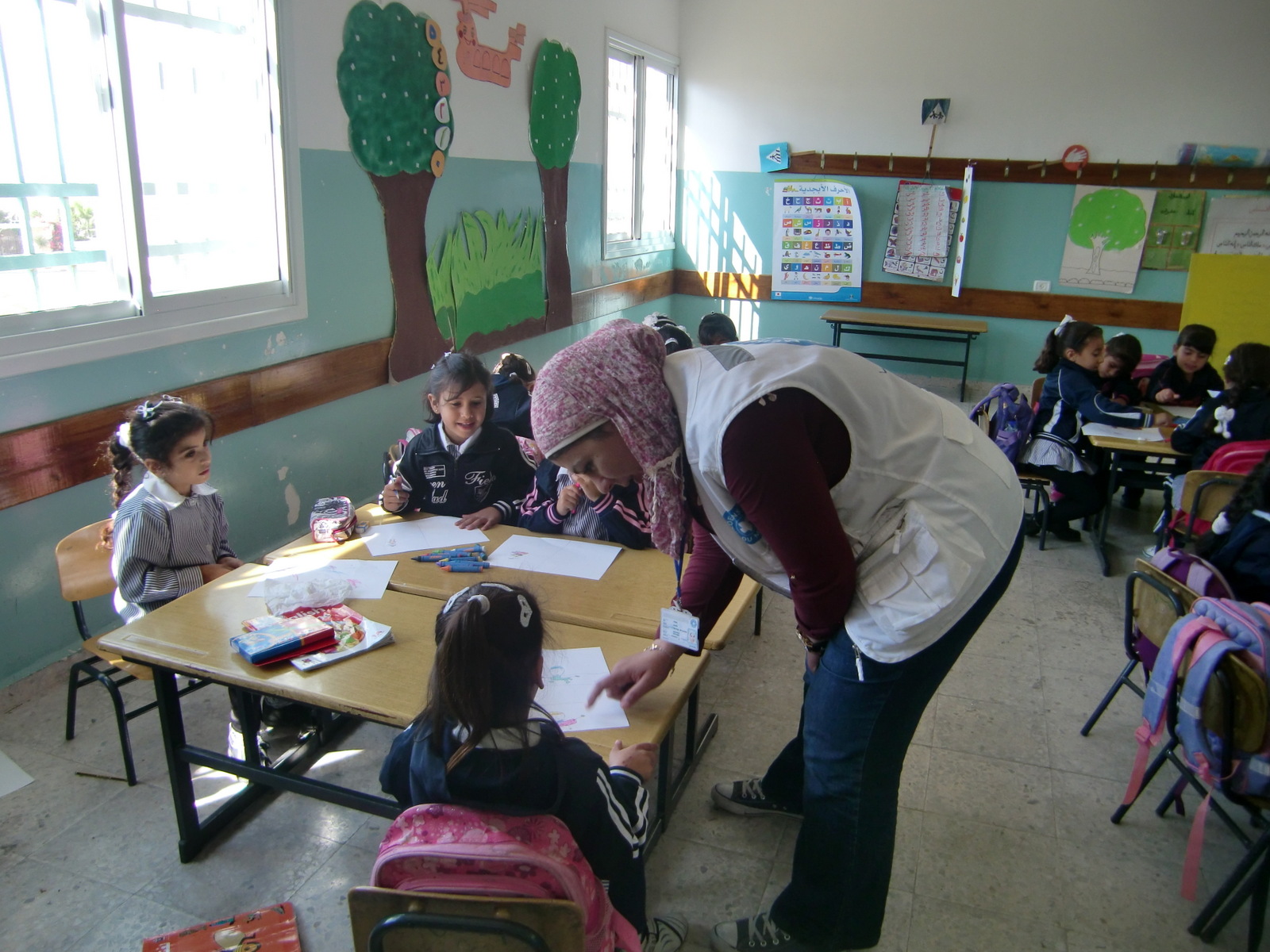Palestine: Amid violence and uncertainty, create a safe space for children to express their feelings

Médecins du Monde resumes its psychosocial activities in six schools of Nablus governorate.
As the second semester of the school year starts, Médecins du Monde-France (MdM) resumes its psychosocial activities for children ages 6-12 in the schools of As-Sawya, Duma and Al-Luban Ash-Sharqiya, Nablus governorate, in partnership with the Ministry of Education through the School counseling department of the Directorate of Education-South Nablus. Living in poor and isolated villages and frequently exposed to violence from settlers and Israeli Security Forces, these children need an open, safe and confidential space to express their feelings.
Nablus governorate is the governorate most affected by settler’s related violence in the West Bank: in 2013, the Office for the Coordination of Humanitarian Affairs (OCHA) reported 119 incidents there. Fifty-nine Palestinians, including seventeen children, have been injured in such incidents. Incidents also happened in schools. Last October, the Jalud Mixed Secondary school was attacked by 30 settlers while 192 students were attending classes. 25% of them have been so scared by the attack that they have not been able to go back to school in the following days. In response to this emergency situation, school counselors provided the students with mental health support.
Drawing on their 15-year experience on the ground, MdM teams uncovered the highly negative impact that such violence has on the mental health status of Palestinian children. MdM psychologists and social workers regularly meet children with psychological symptoms and social problems such as insecurity feelings, hypervigilance, bedwetting, attention deficit hyperactivity, anxiety, low level of academic achievement or social withdrawal.
During the first semester of the school year 2013-2014, 3,200 children in fifteen different schools benefitted from MdM psychosocial activities. “Through drawing, role playing, music and traditional games, we work with the children on social interaction, communication skills, conflict resolution and self-esteem. Our aim is for them to reach psychological balance”, explained Shaheera, MdM social worker conducting sessions with the children. Following the activities, changes have been noticed in children’s behavior. “Interaction and children’s participation in my classes have increased”, said a teacher at Duma Mix School.
Concerns expressed by children during the sessions encourage MdM teams to remain vigilant regarding their psychological state. Close collaboration between school counselors and MdM teams is essential to support children adequately. During the sessions, MdM social workers can identify children with specific psychosocial needs. They refer them to school counselors who provide individual and group counseling services to the children. If needed, children can be referred to the Community Mental Health Center.
To ensure a better follow-up of children suffering from mental health disorders, MdM also works to strengthen the mental health services for children and adolescents, in partnership with Médecins du Monde-Switzerland and the Palestinian Councelling Center. Recurring themes in children’s drawings, such as imprisonment or soldiers’ attacks, clearly show the need to support these children on the long run.
MdM team members in Nablus are available on request for interviews or visits of MdM psychosocial activities in the schools.